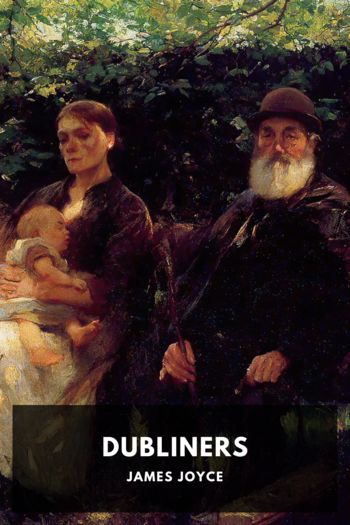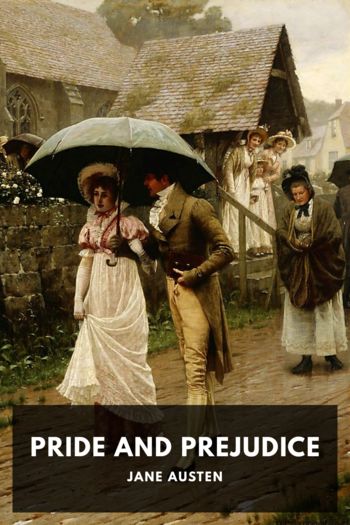Genre Other. Page - 310

Description
The Mysterious Affair at Styles isn’t just Agatha Christie’s first Poirot novel, it was the only Poirot novel in the public domain until 2019. It was written on a bet that Christie couldn’t write a detective novel in which the reader couldn’t deduce the criminal. Her attempt laid the foundation for one of literature’s most famous detectives.
In this novel we’re introduced to Poirot as he’s settling in to a new life in England. After a woman is murdered at the country estate he’s visiting, he has to use his detective skills to catch the criminal. The Mysterious Affair at Styles sets the stage for the Golden Age of Detective Fiction, and has everything you’d expect from a story rich in those classic detective fiction tropes.

Description
The Jungle is one of the most famous muckraking novels in modern history. Set in Chicago at the dawn of the 20th century, it tells the story of an immigrant Lithuanian family trying to make it in a new world both cruel and full of opportunity. Their struggles are in part a vehicle for Sinclair to shine a spotlight on the monstrous conditions of the meatpacking industry, to expose the brutal exploitation of immigrants and workers, and to espouse his more socialist worldview.
The novel is in part responsible for the passage of the revolutionary Meat Inspection Act and the Pure Food and Drug act, and thus the establishment of the modern-day Food and Drug administration in the U.S. Its impact is in no small part due to the direct and powerful prose Sinclair employs: the horrors of commercial meat production are presented in full and glistening detail, and the tragedies and misfortunes of the Rudkus family are direct and relatable even today.

Description
Anton Chekhov is widely considered to be one of the greatest short story writers in history. A physician by day, he’s famously quoted as saying, “Medicine is my lawful wife, and literature is my mistress.” Chekhov wrote nearly 300 short stories in his long writing career; while at first he wrote mainly to make a profit, as his interest in writing—and his skill—grew, he wrote stories that heavily influenced the modern development of the form.
His stories are famous for, among other things, their ambiguous morality and their often inconclusive nature. Chekhov was a firm believer that the role of the artist was to correctly pose a question, but not necessarily to answer it.
This collection contains all of his short stories and two novellas, all translated by Constance Garnett, and arranged by the date they were originally published.

Description
The Time Machine is the novel that gave us the concept of—and even the word for—a “time machine.” While it’s not Wells’ first story involving time travel, it is the one that most fully fleshes out the concept of a device that can send a person backwards and forwards in time with complete precision. Time machines have since become a staple of the science fiction and fantasy genres, making The Time Machine one of the most deeply influential science fiction novels of the era.

Description
Dubliners is a collection of picturesque short stories that paint a portrait of life in middle-class Dublin in the early 20th century. Joyce, a Dublin native, was careful to use actual locations and settings in the city, as well as language and slang in use at the time, to make the stories directly relatable to those who lived there.
The collection had a rocky publication history, with the stories being initially rejected over eighteen times before being provisionally accepted by a publisher—then later rejected again, multiple times. It took Joyce nine years to finally see his stories in print, but not before seeing a printer burn all but one copy of the proofs. Today Dubliners survives as a rich example of not just literary excellence, but of what everyday life was like for average Dubliners in their day.

Description
Pride and Prejudice may today be one of Jane Austen’s most enduring novels, having been widely adapted to stage, screen, and other media since its publication in 1813. The novel tells the tale of five unmarried sisters and how their lives change when a wealthy eligible bachelor moves in to their neighborhood.

Description
Jack London spent nearly a year in Alaska and the Klondike, mining for gold and braving the Alaskan winter. There he was inspired to write what would become The Call of the Wild, one of his most famous novels. The Call of the Wild tells the tale of a domesticated dog stolen from his California family and sold to sledders in Alaska. As he adapts to the harsh and wild environment, he slowly sheds domestication and returns to his primal roots.
The Call of the Wild was London’s first major success, ensuring he’d have a readership for his future writing and paving the way for him to become one of the first writers to amass a fortune from just his fiction.

Description
Thomas De Quincey spent much of his life addicted to the powerful drug opium. This book, first published anonymously in the London Magazine, is the autobiographical account of his addiction. De Quincey’s compelling language and frankness give the reader a window in to both the strange pleasures and the horrible pains of that famous drug.
As the science of addiction was an unheard of thing at the time, De Quincey’s account became a sort of authoritative reference for decades, with people going so far as to denounce the book or presenting too pleasurable a picture of opium use. His work stands as a fascinating window into the life of a Georgian-era addict in one of the busiest cities in the world.

Description
Born a slave and lamed by his master, Epictetus studied Stoic philosophy while in captivity. Once freed, he survived Domitian’s banishment of all philosophers from Rome to settle in Greece, where he founded a school of philosophy. He quickly rose to prominence as a renowned Stoic scholar and teacher, and even though he was personally friendly with emperors, he kept a simple life.
The Enchiridion is a summary of practical advice compiled by Epictetus’ student Arrian. While based on Epictetus’ Discourses, it’s not a philosophical treatise as much as it is a short handbook with practical suggestions on how to live a good and satisfying life. It remained popular for centuries with translations to different languages completed as early as 1493, and was even a common school text in Scotland during the 18th century.

Description
The Idylls are a series of twelve long blank verse poems by Alfred, Lord Tennyson, telling the tale of Arthur and his round table. While some of them are stories of adventure and daring of the kind you’d expect from an Arthurian epic, many take on a darker tone, relating how Arthur was betrayed and how his kingdom grew decadent and eventually fell.
The poems stand on their own as carefully-constructed and masterful examples of long-form blank-verse poetry, and they’re engaging to read strictly as tales of knighthood and intrigue—but many also read the Idylls as allegorical references to Victorian societal mores.